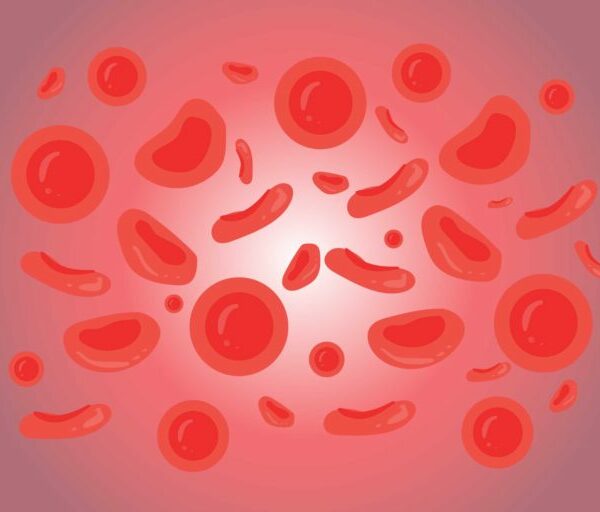In honor of World IBD Day, dietitians from three different continents share tips on managing diet and inflammatory bowel disease (IBD).
ANEMIA MIGHT BE EARLY SIGN OF CROHN’S DISEASE, ESPECIALLY IN MEN
ANEMIA MIGHT BE EARLY SIGN OF CROHN’S DISEASE, ESPECIALLY IN MEN
September 25, 2020
Barbara Brody

Many people with Crohn’s disease, an inflammatory disorder that impacts the digestive tract, become anemic. Now a new study suggests that “healthy” people who’ve recently developed anemia ought to be flagged as higher risk for developing Crohn’s disease.
Anemia is a condition where people don’t have enough healthy red blood cells to carry adequate oxygen to the body’s tissues.
The research, which was published in the journal PLOS One, was a population-based study. Researchers from South Korean used the country’s massive National Healthcare Insurance database to examine the prevalence of anemia and learn about its association with the subsequent diagnosis of inflammatory bowel disease (which includes Crohn’s disease as well as ulcerative colitis).
According to the findings, people who were the most severely anemic (as measured by hemoglobin levels) were 3.3 times more likely than those with plenty of red blood cells to be diagnosed with Crohn’s disease within the next seven years.
Crohn’s disease can cause anemia because patients experience gastrointestinal bleeding, or because they don’t properly absorb iron and other nutrients, which are needed to produce healthy red blood cells.
The researchers determined that the connection between anemia and the later onset Crohn’s was strongest in male patients.
They did not find any significant link between anemia and the development of ulcerative colitis for men or women. Crohn’s disease and ulcerative colitis are similar, but ulcerative colitis only impacts the large intestines whereas Crohn’s can affect any part of the digestive tract.
“Colonoscopy is the most effective diagnostic test to evaluate the presence of [inflammatory bowel disease] in asymptomatic individuals, but this test is not appropriate for disease screening due to its expense and invasiveness,” the authors of the PLOS One study explained.
They suggested that new onset of anemia, particularly in men, ought to be considered a “surrogate marker” for Crohn’s disease and that it should be further studied as a potential tool to aid earlier diagnosis.
Kang EA, et al. Anemia is associated with the risk of Crohn’s disease, not ulcerative colitis: A nationwide population-based cohort study. PLoS One. September 8, 2020. doi: https://doi.org/10.1371/journal.pone.0238244.
SUBSCRIBE TO GHLF
RELATED POST AND PAGES
_
Was this article helpful?
YesNo




